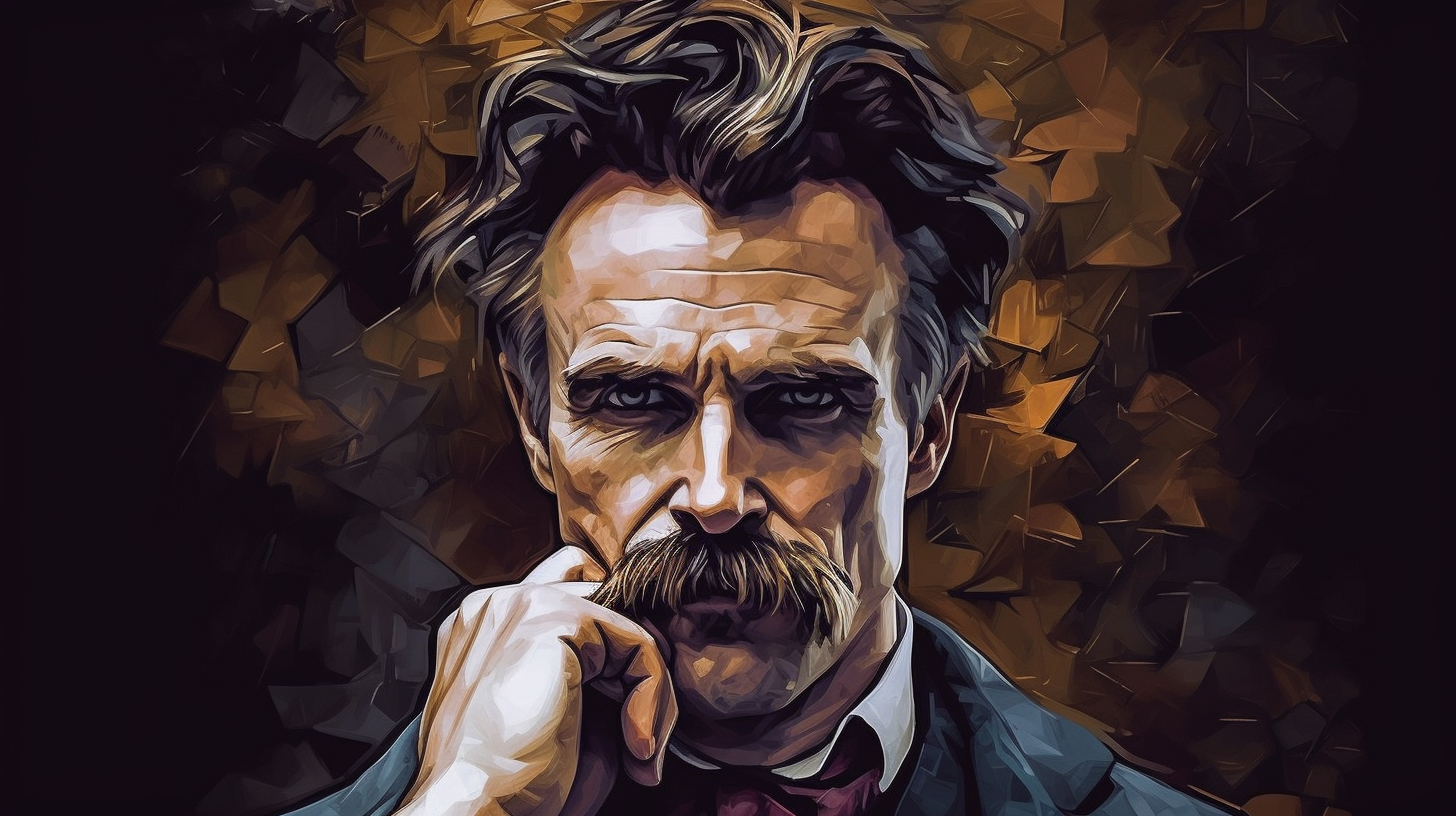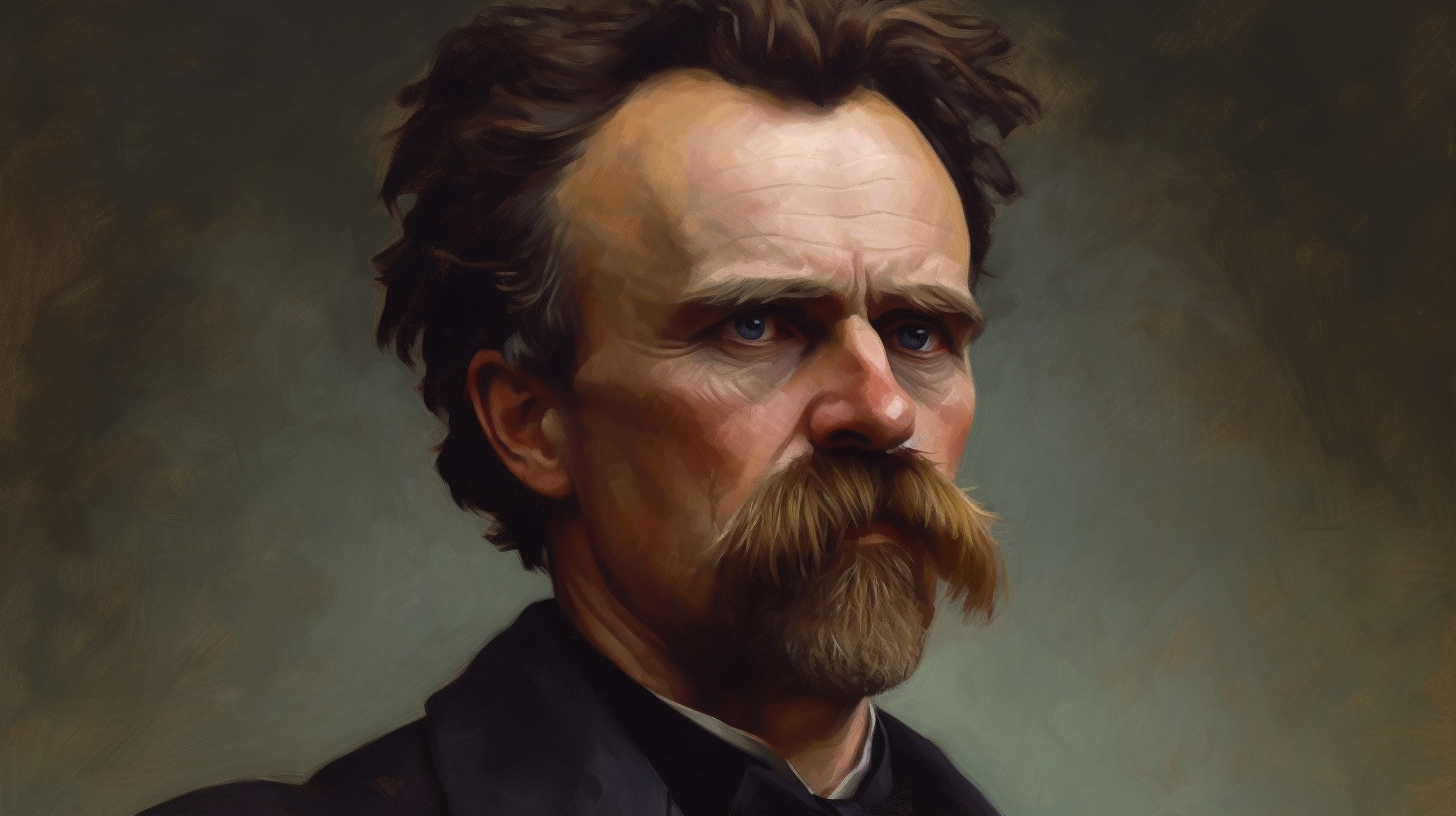Beyond Good and Evil: Nietzsche's Radical Reinterpretation of Morality
Friedrich Nietzsche, the audacious philosopher of the 19th century, masterfully challenged the foundations of traditional morality. In his seminal work, "Beyond Good and Evil," Nietzsche embarks on a radical reinterpretation of character that defies societal norms, explores the complexities of human nature, and urges us to embrace a more nuanced understanding of ethics. In this article, we will delve into Nietzsche's unapologetic critique of conventional morality, drawing upon historical contexts, sharp wit, and intellectual rigor to shed light on the transformative power of his ideas.

Shattering Conventions: Beyond the Dichotomy
Nietzsche, a relentless iconoclast, vehemently criticized the prevailing moral systems of his time, rooted in Judeo-Christian ethics. He boldly proclaimed the death of God, recognizing that traditional morality hinged on the existence of an absolute, transcendent source of values. With this declaration, Nietzsche aimed to dismantle the foundations of conventional morality, paving the way for a more authentic exploration of the human condition.
At the heart of Nietzsche's radical reinterpretation is his rejection of the binary framework of good and evil. He argues that these concepts are merely societal constructs that stifle our understanding of the complexities inherent in human behavior. Instead, Nietzsche champions the notion of "beyond good and evil," urging us to transcend the simplistic dichotomy and embrace a more nuanced perspective.
Nietzsche's critique stems from his recognition that traditional moral systems often serve as tools of power and control. He exposes the underlying motivations behind moral prescriptions, revealing their roots in human desires for dominance and submission. By challenging these conventional norms, Nietzsche invites us to reevaluate our ethical judgments and acknowledge the subjective nature of morality itself.
The Dismatling of Morality
To further dismantle conventional morality, Nietzsche presents his "genealogical" approach to ethics in "Beyond Good and Evil." By tracing the historical origins of moral concepts, Nietzsche unveils the intricate interplay between power, culture, and morality. He argues that our ethical values are not divinely ordained but emerge from the struggles for power and the interests of various groups.
Nietzsche's genealogical analysis challenges us to interrogate the motivations behind moral pronouncements. He reveals how historical contingencies, political agendas, and social dynamics have shaped morality. This incisive examination forces us to confront the uncomfortable truth that our moral convictions are not absolute or universal but products of our specific contexts.
Beyond the traditional notions of good and evil, Nietzsche introduces the concept of the "will to power." He argues that the driving force behind human actions is the desire for self-assertion and domination. Nietzsche's unyielding pursuit of intellectual rigor compels us to confront the uncomfortable notion that our moral judgments may arise from the same primal urges we condemn in others. Through this challenge, Nietzsche implores us to develop deeper self-awareness and acknowledge the complexity of our moral motivations.

Radical Interpretations of Morality
Nietzsche's radical reinterpretation of morality challenges conventional wisdom's complacency. He reminds us that our moral frameworks are not static and unchanging but subject to continual reevaluation. Critiquing the accepted ethical norms, Nietzsche compels us to embark on an intellectual journey, questioning deeply ingrained assumptions and venturing into the uncharted territory of honest exploration.
Historically, great thinkers have often faced resistance and criticism for challenging conventional wisdom. Nietzsche, too, faced his fair share of backlash for his audacity. However, it is precisely through this resistance that intellectual progress thrives. Challenging prevailing notions, no matter how uncomfortable, is necessary to push the boundaries of human understanding.
Nietzsche's sharp wit and incisive observations cut through the fabric of conventional morality. He challenges us to confront our biases, question our moral certainties, and embrace intellectual growth's discomfort. In a world where moral absolutism often dominates public discourse, Nietzsche's radical reinterpretation serves as a clarion call for academic freedom and independent thought.

Conclusion:
In "Beyond Good and Evil," Nietzsche provides a philosophical arsenal that challenges conventional wisdom and opens up new avenues for moral exploration. His unyielding pursuit of intellectual rigor, his incisive critique of traditional morality, and his insistence on embracing complexity compel us to reevaluate our ethical judgments and seek a more accurate understanding of human existence. By engaging critically with Nietzsche's ideas, we embark on a transformative journey that liberates us from the shackles of simplistic moral dichotomies and invites us to embrace the rich tapestry of human nature. In a world hungry for intellectual progress, Nietzsche's radical reinterpretation of morality serves as a rallying cry to challenge conventions, challenge conventional wisdom, and embrace the relentless pursuit of truth.

Plato Re-Imagined
This course offers 32 comprehensive lectures exploring most of Plato's dialogues. These lectures guide students toward a consilient understanding of the divine—a concept that harmonizes knowledge across disciplines and resonates with secular and religious leaders. As a bonus, Lecture #33 focuses on consilience, demonstrating how different fields of knowledge can converge to form a unified understanding.






